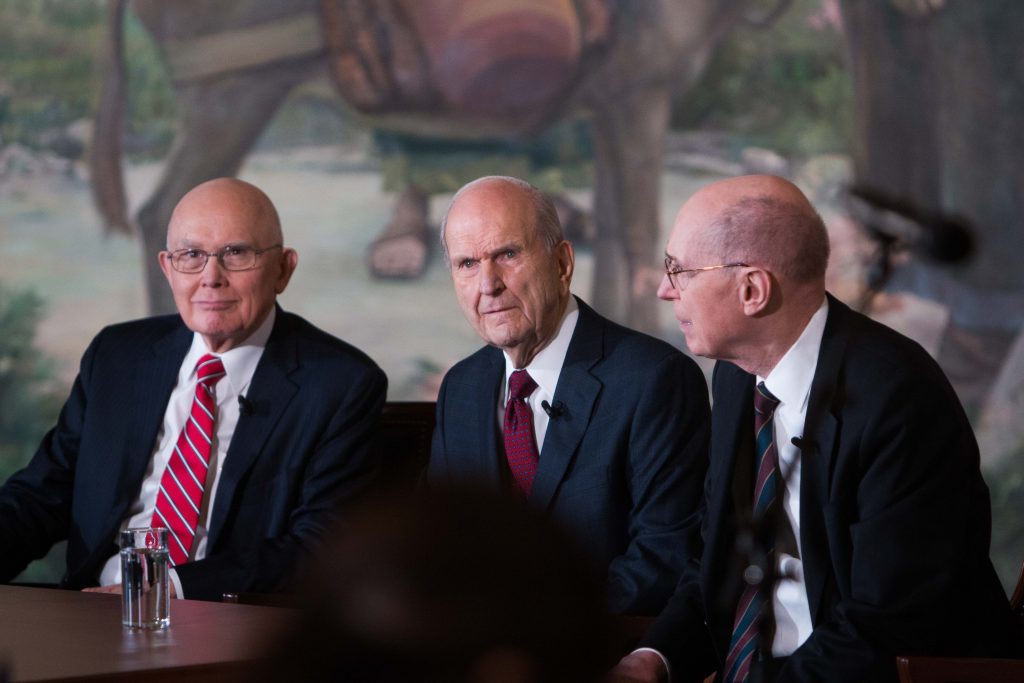
A letter issued by the First Presidency of The Church of Jesus Christ of Latter-day Saints invites U.S. members to assess political candidates’ integrity and avoid voting “straight ticket.”
The letter, titled “Political Participation, Voting, and the Political Neutrality of the Church,” was issued to Church leaders on June 1 to be read out in sacrament meetings.
Members were urged to become informed on current political issues and potential candidates. The First Presidency also encouraged members to seek candidates who embody gospel principles, holding “integrity” and “compassion.”
According to the letter, “Merely voting a straight ticket or voting based on ‘tradition’ without careful study of candidates and their positions on important issues is a threat to democracy and inconsistent with revealed standards.”
The Church historically has taken a neutral approach to politics, usually weighing in on issues that have “moral consequences” for members.
For example, in 2008 the Church supported Proposition 8, a state constitutional amendment to restore marriage exclusively between a man and a woman in California.
This newest letter has caused speculation among some members over the Church’s intention.
Utah has consistently voted Republican in presidential elections for 59 years; the last Democratic candidate to win the Utah vote was Lyndon B. Johnson in 1964. The state has also elected Republican Governors since 1984.
BYU College Republicans member and political science major Jake Andersen feels the statement was misguided.
“I believe it was an attempt to rectify political divisions … I believe it was a little naive though … based on how politics works. The purpose of voting straight down ticket is to empower the people you put at the top of the ticket.”
Andersen explains how splitting the ticket leads to political deadlock.
“A lot of administrations can’t get anything done because they have to deal with a completely bifurcated system of government … splitting your ticket does not help mend that issue. Straight ticket ballots are a tool to enact a political vision,” Andersen said.
Tyler Rowell, an economics major at BYU, describes himself as socially liberal and agrees with the Church’s statement. Rowell specifically supports the Church’s advice on not just voting straight ticket out of habit.
“I think it’s very easy to just cop out for a specific party affiliation based off of who you are. I’ve always kind of been frustrated by the conservative default perspective from Christians,” Rowell said.
Rowell said open-mindedness is important in the modern “hostile political climate.”
“I totally want people to believe what they believe but when you say ‘I’m gonna vote for this candidate no matter what because he expresses my ideals, just based off of party,’ I think you’re discounting what individual candidates can actually bring to a presidency,” Rowell said.
Since releasing the letter, the Church also updated its Political Neutrality and Participation page on its website.
A new leading paragraph reiterates the Church’s commitment to political neutrality, stating it does not oppose or endorse political parties.
A new concluding paragraph also states the First Presidency’s commitment to seeking prophetic wisdom and revelation concerning participation in an “ever-changing and complex world.”




